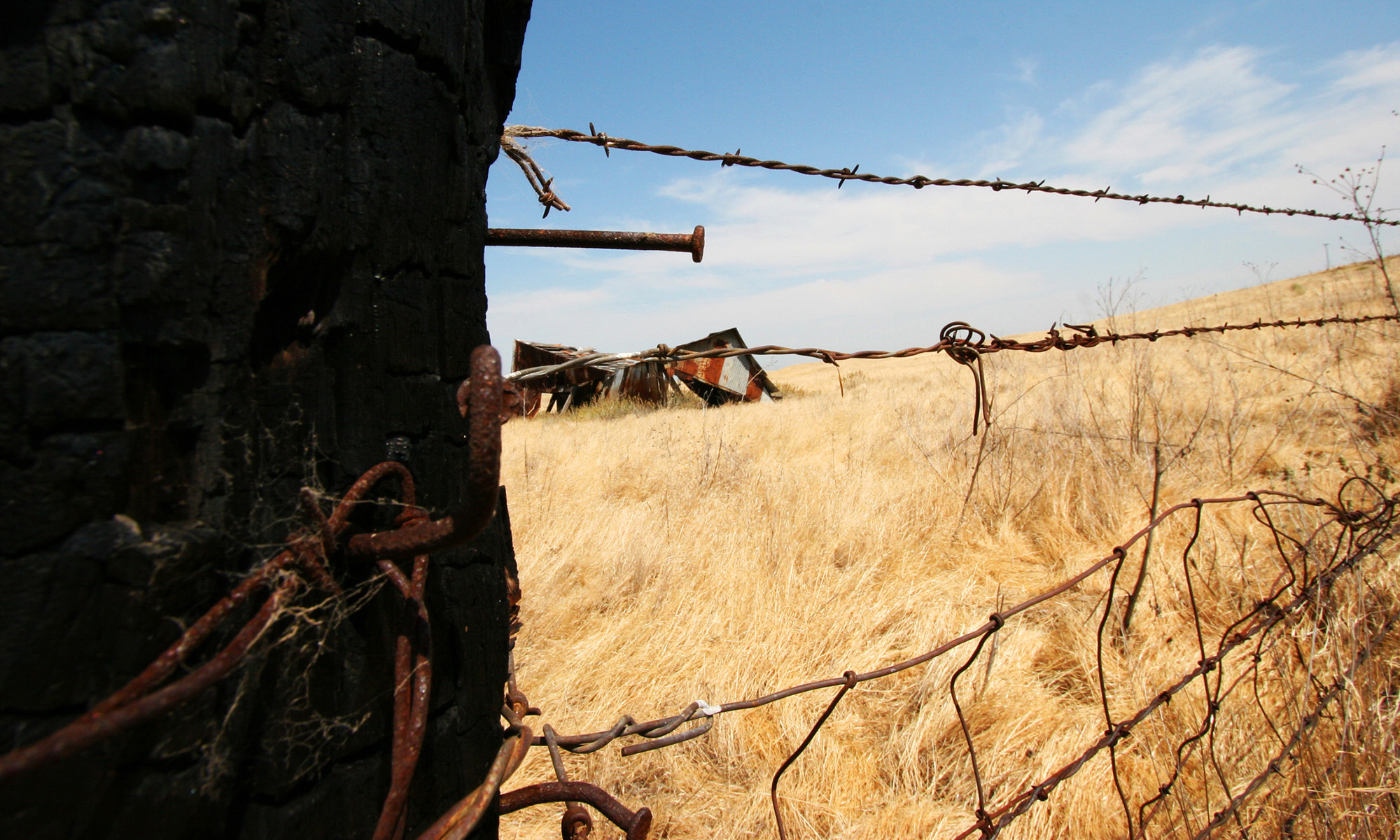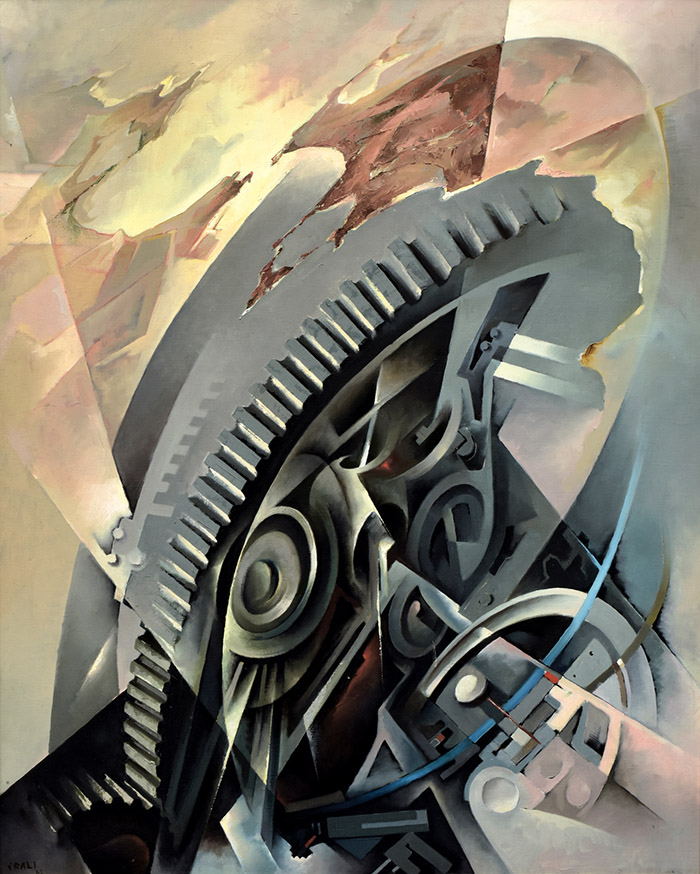The sense of display is abolished. The objects are inorganic and dateless: milky long-necked bottles and squat flasks, a biscuit tin, a fluted bowl, some long-beaked metal pitchers. They carry no marks, patterns or brand names. One thinks of them not as manufactured objects but as elements in a hesitantly ideal architectural scheme. Sometimes the slender bottle necks, leaning together, vaguely recall the towers of Bologna or San Gimignano. They look fragile and contingent, but they endure for decades, through picture after picture. (To make quite sure that nothing disturbed the precise relationships he put them in, he drew chalk circles around the the bases of his “models” on the surface of the table.) Occasionally their groups, bound together by some mutual gravitation of shape, might remind one of people insecurely huddled on the edge of a small flat earth, the tabletop.

1709 J. Addison Tatler No. 108. ⁋3 They give mean Interpretations and base Motives to the worthiest Actions. 1526 Bible (Tyndale) 1 Cor. xii. 10 To won is geven the vtteraunce off wisdom..To another the interpretacion off tonges. 1387 J. Trevisa tr. R. Higden Polychron. (Rolls) VII. 153 Ȝe auȝt for to soften þe opiniouns of fonde men wiþ better interpretacioun. 1450 Mirour Saluacioun 1027 After of this dreme herd he swilk interpretacionne. 1733 G. Cheyne Eng. Malady ii. viii. 203 And so the Fever terminates in a critical Abscess. 1807 Monthly Mirror Nov. 374 Mr. Elmsly is about to publish a new critical edition of Sophocles, with a text collated from the best manuscripts and printed editions. 1753 J. Lining Let. 14 Dec. in Ess. & Observ. (Philos. Soc. Edinb.) II. 372 That fever, which continues two or three days, and terminates without any critical discharge by sweat, urine, stool, &c. 1601 P. Holland tr. Pliny Hist. World I. xvii. ii. 500 The foure decretorie or criticall daies, that give the dome of olive trees, either to good or bad. 1382 Bible (Wycliffite, E.V.) Josh. Prol. If the oold oonliche interpretacioun plese to hem. 1871 J. C. Maxwell Theory of Heat vi. 124 M. Cagniard de la Tour estimated the temperature and pressure of the critical state. 1646 Sir T. Browne Pseudodoxia Epidemica vi. i. 279 Whatsoever Interpretations there have beene since, have been especially effected with reference unto..the Greeke and Hebrew text. 1447 O. Bokenham Lyvys Seyntys 44 Aftyr the reulys of interpretacyon Anne is as myche to seyn as grace. 1872 J. P. Mahaffy tr. I. Kant Prolegomena in Kant’s Crit. Philos. III. 62 I now retract it [sc. the word ‘transcendental’], and desire this idealism of mine to be called critical. 1654 R. Whitlock Ζωοτομία 186 He is not Criticall and exact in Garbes and Fashions. 1565 W. Alley Πτωχομυσεῖον To Rdr. f. 16v If these simple Prelections chaunce peraduenture to come into the handes of some scrupulous and captious criticall reader..let him know that it is a great deale more easie to carpe other mens doinges, then to giue better of his owne. 1841 J. R. Young Math Diss. Pref. 7 Even in the extreme and critical case of the problem. 1850 Morning Chron. 25 Dec. 7/4 His opinions..have weight; and we doubt not will be duly estimated by the critical and the judicious. 1719 W. L. Coll. Tunes Ded. sig. A2v/1 It has been the Fate of better Performances than this, to pass under the severe Censures of the Critical. 1909 Trans. Illuminating Engin. Soc. (U.S.) 4 717 f is the critical flicker frequency. 1899 T. O’C. Sloane Liquid Air i. 20 When a gas is at the critical temperature and at the critical pressure also, the least increase of pressure or decrease of temperature will convert it into a liquid. When in this condition, ready to be a gas or a liquid, it is said to be in the critical state. 1881 J. Russell Haigs of Bemersyde Introd. 3 It was not in his nature to be either critical or indifferent. 1605 F. Bacon Of Aduancem. Learning ii. f. 69 There remayn two Appendices touching the tradition of knowledge, The one Criticall, The other Pedanticall. 1867 E. A. Freeman Hist. Norman Conquest I. App. 617 He shows a good deal of critical acumen. 1931 Rev. Mod. Physics 3 347 Bohr’s theory was so quickly supported by the experiments on critical potentials. 1866 G. MacDonald Ann. Quiet Neighb. xi. 191 Perhaps I may have put a wrong interpretation on the passage. 1701 C. Cibber Love makes Man v. 53 Well, Madam, you see I’m punctual..I’m always critical—to a Minute. 1877 M. Oliphant Makers of Florence (ed. 2) x. 257 Things he had done which no charitable interpretation could explain away. 1869 T. H. Huxley in Sci. Opinion 21 Apr. 464/2 The knowledge..requisite for the just interpretation of geological phenomena. 1617 S. Collins Epphata to F. T. i. 5 Wil you blame me as too criticall for distinguishing betweene gerere and gestare? 1890 Church Rev. July 276 In company with most critical commentators on books of the New Testament, Bishop Ellicott has one fault. 1741 C. Middleton Hist. Life Cicero II. viii. 237 Cæsar was conversant also with the most abstruse and critical parts of learning.
Continue reading “Dialogue Heresyes i, in Wks. 141/2 In the interpretacion we may paraduenture styck, Is it not so? That is some Satire keene and criticall.”


